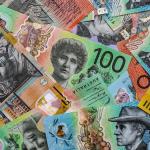In a significant milestone for the South Korean cryptocurrency landscape, the nation recently witnessed its first institutional digital asset sale following the lifting of a longstanding ban on institutional crypto transactions. This development is poised to reshape the industry landscape and facilitate broader adoption and integration of digital assets in various sectors.
On June 1, 2025, South Korea’s non-profit organization World Vision successfully completed this historic sale, marking the first institution in the country to navigate the newly permissible landscape of digital asset transactions. In a statement released by Dunamu, the parent company of the prominent crypto exchange Upbit, it was disclosed that World Vision sold 0.55 Ether (ETH) for 1.98 million won, approximately $1,437.
This change comes as part of a new regulatory framework established by the Financial Services Commission (FSC), which now enables non-profit organizations, including charitable entities and educational institutions, to sell crypto holdings via local exchanges. The permission aligns with the FSC’s roadmap designed to encourage corporate participation in the burgeoning digital asset market.
Previously, a ban on institutional investments and uncertainties surrounding the regulatory landscape kept many organizations at bay. However, significant progress has been made since February when the FSC’s Virtual Asset Committee signaled the gradual lifting of restrictions. It permitted the establishment of real-name accounts for institutions, with a phased approach commencing with non-profits in the second quarter.
In South Korea, the issuance of real-name accounts is a prerequisite for engaging in crypto investments. These accounts must adhere to expectations outlined in the Specified Financial Transaction Information Act, which ensures that only verified accounts can engage in digital asset trading. Unfortunately, banks had been directed not to issue these accounts to corporate entities, limiting their participation in the crypto market.
Thanks to Upbit’s support, World Vision successfully linked its corporate account with K Bank to execute its transaction. The Ethereum sold during this process stemmed from a digital asset donation campaign conducted three months prior, targeting Upbit users. The funds from this campaign go directly towards purchasing essential items for underprivileged teenagers, such as school uniforms and backpacks, during back-to-school preparations.
In light of this encouraging news, Dunamu expressed its commitment to further aiding non-profit organizations in facilitating sales of their respective digital assets received through donations. The focus remains on adhering to financial authorities’ guidelines to promote a robust culture of virtual asset donations.
Moreover, the firm has unveiled ambitions to support the next phase of the FSC’s roadmap, which anticipates allowing qualified publicly traded companies and professional investors to venture into the digital asset market by the third quarter of 2025. This progressive trajectory indicates an eagerness to foster a thriving institutional crypto ecosystem.
As South Korea awaits the upcoming snap presidential election on June 3—set to fill the vacancy left by the impeachment of President Yoon Suk-yeol—the political landscape could further influence the future of digital assets in the country. Notably, the two leading candidates have expressed intentions to implement industry-friendly policies designed to benefit the nearly 18 million digital asset investors in South Korea.
The candidate of the People Power Party (PPP), Kim Moon-soo, has outlined plans to allow spot crypto Exchange-Traded Funds (ETFs) should he win the election. With the growing interest in digital assets among younger demographics, Kim’s campaign emphasizes the importance of integrating spot ETFs into the framework of possible investment products, alongside other financial policies aimed at wealth accumulation for the middle class.
On the opposing side, Democratic Party of Korea (DPK) candidate Lee Jae-myung has similarly pledged to introduce spot crypto ETFs and to reduce transaction taxes associated with digital assets. Lee’s campaign slogan focuses on ensuring a secure virtual asset investment environment by advocating for a comprehensive surveillance system and enhanced investor protections.
As the digital asset market continues to evolve, South Korea stands to benefit significantly from these developments. Encouraging regulations and supportive political candidates indicate a shift towards a more inclusive and accessible digital financial landscape. With the national embrace of cryptocurrency possibilities, Korea is on a path to fostering a globally recognized crypto economy.
Overall, the implications of South Korea’s first institutional crypto sale extend beyond mere transactions. It suggests a shift toward more significant adoption of blockchain technology and the potential for integrating digital assets across various sectors, including charitable initiatives, education, and investment products. The move symbolizes not only a victory for the non-profit sector but also a victory for the growing number of individuals embracing cryptocurrencies.
As South Korea navigates this new chapter in its crypto journey, the eyes of investors, regulators, and crypto enthusiasts alike will be focused on upcoming developments—especially in light of the pending presidential election—and their ability to mold the future of digital assets in the nation.
This transformative moment echoes a sentiment of optimism in the cryptocurrency community, as it hints at the dawn of a new era for digital assets in South Korea—a potential pathway to integrate blockchain solutions into everyday financial activities, fostering innovation and economic growth in the process.
Source link










